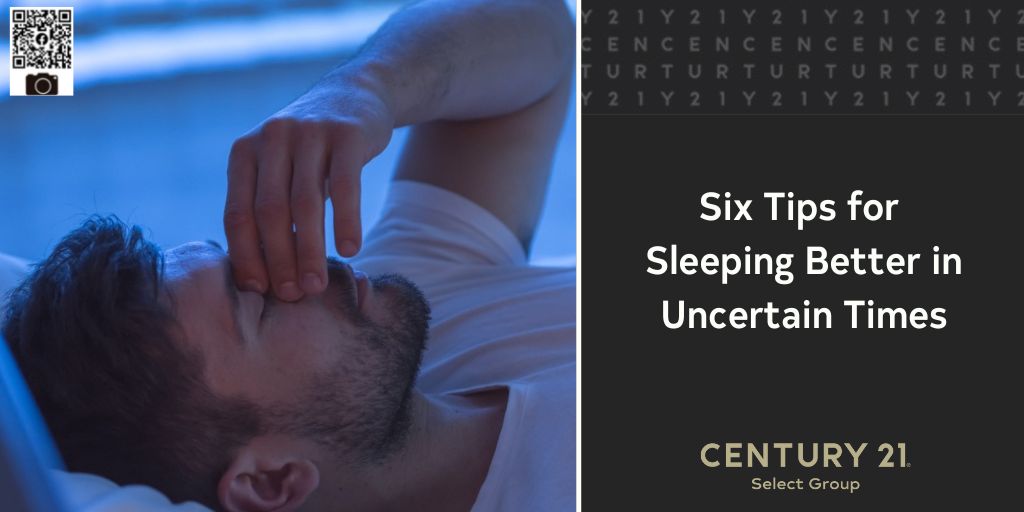Six Tips for Sleeping Better in Uncertain Times
Stress is the enemy of restful sleep. We are living in a time when it’s hard to avoid feeling stressed, but poor sleep adversely affects hormonal balance and brain function. A good night’s sleep is just as important to good health, physically and mentally, as exercise and a healthy diet.

From physicians and sleep therapists, here are six ways to help improve your chances of achieving more restful nights:
- Stick to a routine. Going to bed at the same time each night helps prepare your body for sleep. Try to maintain a regular routine, perhaps taking a bath, reading for half an hour or meditating for even a few minutes just before lights out.
- Avoid technology. Studies have shown that blue light or bright screens just before bedtime can disturb your sleep. Don’t check your phone or your laptop and avoid watching TV just before retiring.
- Watch your intake. Consuming alcohol or caffeine late in the evening can keep you wide-eyed for hours, as can eating heavy foods. Stick to non-caffeinated drinks and light snacks in the hours leading up to bedtime —and bear in mind that drinking too much liquid of any kind in the evening may lead to frequent urination, a common cause of sleep interruption.
- Optimize your environment. Use your thermostat and/or an overhead fan to regulate temperature, keeping your bedroom to the cool 65-degree level recommended by the National Sleep Council. If outside noise is a problem, try blocking it out with a white noise machine or noise cancelling earplugs.
- Upgrade your bedding. A new mattress, or even a new pillow, can do wonders to better align your spine, relieve joint pain and improve sleep. Try settling into soft, new sheets with a high thread count. Upgrade to a soft comforter or try a weighted blanket, which some say reduces anxiety or depression and helps improve overall sleep.
- Rule out a sleep disorder. If all else fails, visit your doctor. An underlying condition, such as sleep apnea, can be potentially serious as it causes inconsistent or interrupted breathing.




